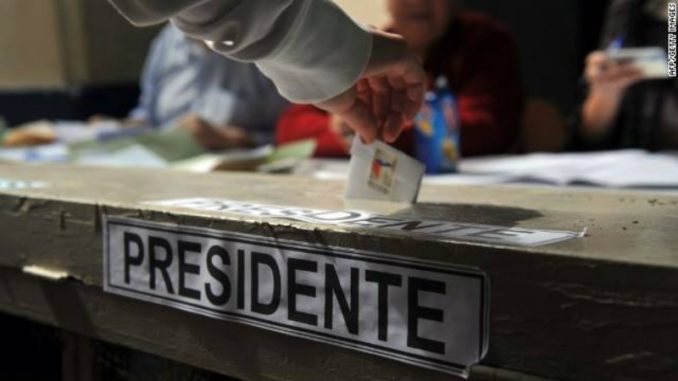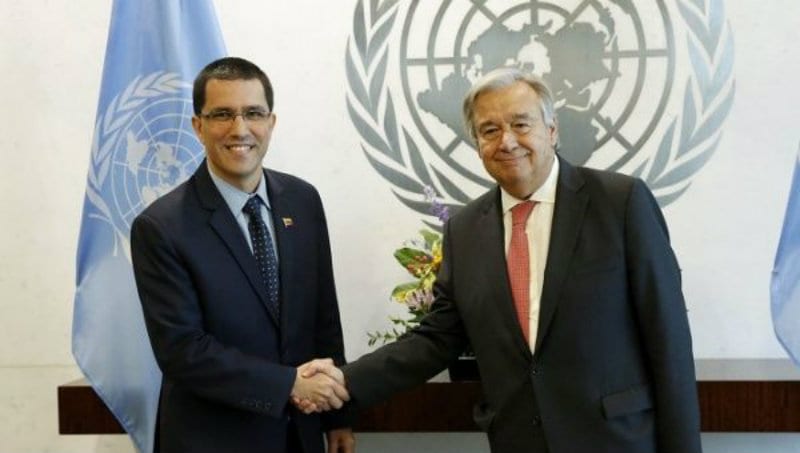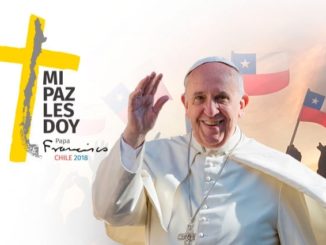
Tomas Croqueville/The Santiago Times Staff
With the presidential elections 2017 in Chile approaching, The Santiago Times takes a look at the presidential candidates. Who are these people running for president of Chile? What´s their place in the political spectrum? What parties do they represent?
Eight candidates are registered for the first round of the presidential election that will be held on the 19th of November.
The number of candidates came through a long rumble with more than 14 candidates (with former president Ricardo Lagos among others), who left the race or could not obtain enough signatures.
The first candidate The Santiago Times presents you is:
Sebastian Piñera
 His candidacy, which will be the third time he seeks the presidency, has been marked by a shift to a more right-wing policy, compared to his last candidacy when he ran as a centrist. On this occasion, Piñera is aggressively running against the progressive agenda of the Bachelet administration during the last 3 and a half years, opposing policies implemented or proposed, such as free universal higher education, abortion in 3 cases (in case of incest, danger of maternal death life and rape) and equal marriage.
His candidacy, which will be the third time he seeks the presidency, has been marked by a shift to a more right-wing policy, compared to his last candidacy when he ran as a centrist. On this occasion, Piñera is aggressively running against the progressive agenda of the Bachelet administration during the last 3 and a half years, opposing policies implemented or proposed, such as free universal higher education, abortion in 3 cases (in case of incest, danger of maternal death life and rape) and equal marriage.
He has been the front runner in the polls almost since he left office in 2014, despite the fact that he had not assumed that he wanted to return to the presidency, until he finally launched his candidacy on March at Quinta Normal Park obtaining the almost absolute support of the establishment of the right.
Currently he is still ahead in the polls, but he is also the candidate more exposed to scandals, like the Bancard case and the discovery of tax havens in the Virgin Islands, linked to his companies.
Alejandro Guillier
 The Former news anchor is one of the best-evaluated parliamentarians of the country. Convinced by the Radical Party he confirmed that he would present himself as a candidate, but as an independent, making way for heavyweights from the Chilean left center, like the former President Ricardo Lagos (2000-20006) and former Secretary General of the OAS José Miguel Insulza (2005-2015), in order to obtain the support of most of the parties of the government coalition Nueva Mayoría ( New Majority).
The Former news anchor is one of the best-evaluated parliamentarians of the country. Convinced by the Radical Party he confirmed that he would present himself as a candidate, but as an independent, making way for heavyweights from the Chilean left center, like the former President Ricardo Lagos (2000-20006) and former Secretary General of the OAS José Miguel Insulza (2005-2015), in order to obtain the support of most of the parties of the government coalition Nueva Mayoría ( New Majority).
His candidacy has been described by himself as a repudiation of the political class and as a bridge between the center left parties and the people, seeking to continue and deepen the reformist agenda of President Bachelet.
He is currently second in the polls and has been criticized for not having a clear message, and for projecting himself as an outsider, while he is the candidate supported by the current government, with a record of ties with the factual powers.
Carolina Goic
 As president of the Party of Christian Democracy (one of the oldest in the country) and senator of the southern region of Magallanes, she began her candidacy after receiving a letter signed by 12 of the 15 regional leaders of the party, thus counting on the support of the party base.
As president of the Party of Christian Democracy (one of the oldest in the country) and senator of the southern region of Magallanes, she began her candidacy after receiving a letter signed by 12 of the 15 regional leaders of the party, thus counting on the support of the party base.
Proclaimed by the National Board, she announced in April her decision not to compete in the primaries with Alejandro Guillier, forcing a break in the New Majority coalition.
Her message centers in the idea that the New Majority coalition went too far to the left, so her candidacy seeks to recover the message of moderation and economic growth of the old Concertación (Concertation) coalition (the center-left coalition that ran the country for 20 years) looking to recover the center and appeal to potential Piñera voters.
She has been questioned inside her own party for her low performance in polls, but the conflict over the nomination of deputy Ricardo Rincón (who had allegations of domestic violence), gave her a new impulse.
Alejandro Navarro
 The senator and former member of the Socialist Party and ex MAS (Broad Social Movement) fulfilled his word and, having run in two previous elections as pre-candidate for the presidency, officially became part of the November ballot, running with the message that the New Majority “made him exhausted, he lost his citizen instinct, he shrank.”
The senator and former member of the Socialist Party and ex MAS (Broad Social Movement) fulfilled his word and, having run in two previous elections as pre-candidate for the presidency, officially became part of the November ballot, running with the message that the New Majority “made him exhausted, he lost his citizen instinct, he shrank.”
He appeals to voters by representing “the left” accompanied by parliamentarians, who make up the pact with the Progressive Party and in political alliance with the Constituent Assembly and other movements.
Navarro is known in Chilean politics for his admiration for Hugo Chavez and his unconditional support of the government of Maduro in Venezuela and the “Bolivarian revolution,” which may create some problems with the moderate electorate.



